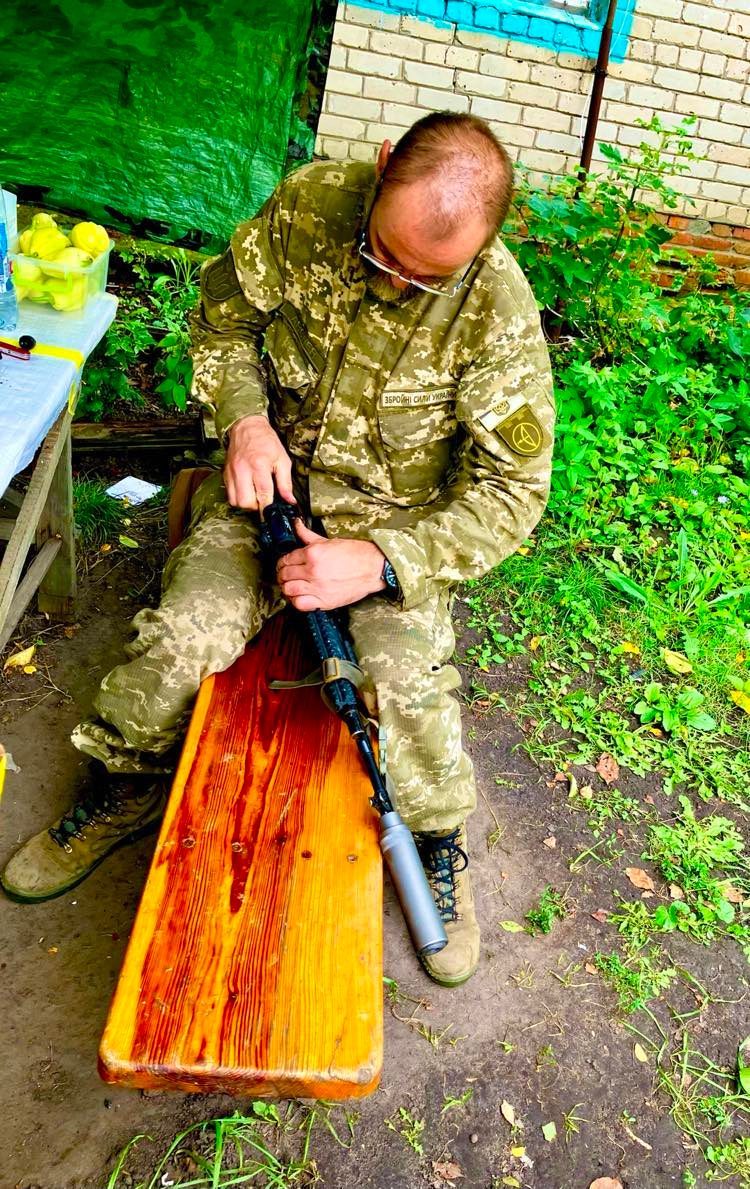- Ravi Zupa
- Douglas Mason1
- Natalya Sukhonos
- Yael Friedman
- Jack Neary
- K. McLeod
- Bob Bickford
- Chris Vaughan
- Chris Robinson
- Lynn Crosbie
- Rosby Strong
- Alana Solomon
- Velvet Chic Volcano
- Douglas Mason
- Suzanne Richardson
- Steve McOrmond
- Charles Wing-Uexküll
- Corey Hardeman
- Eliška Jahelková
- Todd Dixon
- Donnez Cardoza
- Rebecca Blissett
- Lunar Boy from Salem and Cinemascope
- Douglas Mason2
- Gun Roze
- Jane Wilson
- Toby Rosenbloom
- James Sutherland-Smith
- Kathryn McLeod
- Michael Murray
- Josh Patterson
- Anonymous
The solider and Saint-Exupéry
At the edge of a small village in Ukraine, next to trenches on the frontline of a war sat a soldier. It was a warm and sunny summer day; the fields stretched endlessly, all the way to the Russian lines four km away. Olexy was an agronomist before the war. I asked him some questions.
What is your favourite book—The Little Prince by Saint-Exupéry; it is both beautiful and magical
What is your favourite band—Pink Floyd
What was your last dream—I was flying
What do you think about for the future, for when the war is over—that our country is independent and free and civilised.
What is a civilised country—a place with culture, somewhere that has human values and the law.

Archer—a nomme de guerre
I joined the army on the first day of the war. When I woke to the sound of bombing in Kyiv I put on some clothes and went out; they were the only clothes I had for the next two months. I slept on a cardboard box for a mattress in winter—that was actually a luxury. My father lives in Russia, when I called to tell him what was happening and that we were being bombed in Kyiv he refused to believe it—he said you are brainwashed. We have not spoken again.
This man, an engineer aged 56, previously worked for a company making thermal imaging equipment. His experience is typical for most of the men in this unit, nearly all mid-career professionals—computer programmers, supermarket managers—who have exchanged comforts and prosperity to be here. It is worth noting what that life is like. In the 48 hours I spent on the front line embedded with a unit of the Ukrainian Armed Forces, the most notable thing, apart from physical risk, was the physical stamina required of ordinary soldiers. That meant the mental focus of military duty (long hours staying alert, or going on patrol); physical discomfort (sleeping on the ground, shared meals and facilities, in short, living like you are on a permanent outdoor camping trip), operating technically complicated equipment (drones, weapons, GPS and radio systems) and compartmentalising the risk of death; at any time someone or something you cannot see—a missile or artillery shell—may kill you.

Yes, of course death is something you have to think about as a soldier. But it would be sadder to die without having tried to do something about what was happening to our country.

Douglas Mason
Douglas Mason is a Canadian writer and economist who has spent time at the sharp end of things in various countries and now lives in a village in rural South Africa. He believes that liberal democracy, the rule of law, free markets and open societies are things to be cherished. He is on extended assignment in Ukraine.
